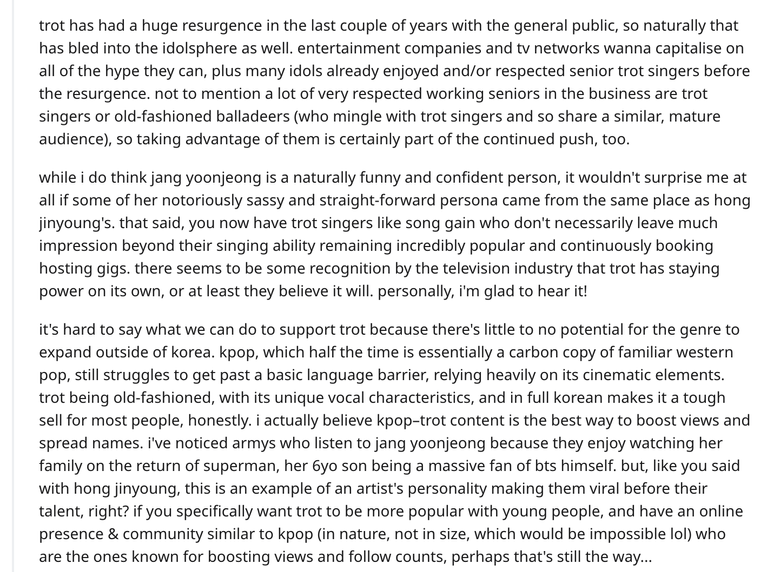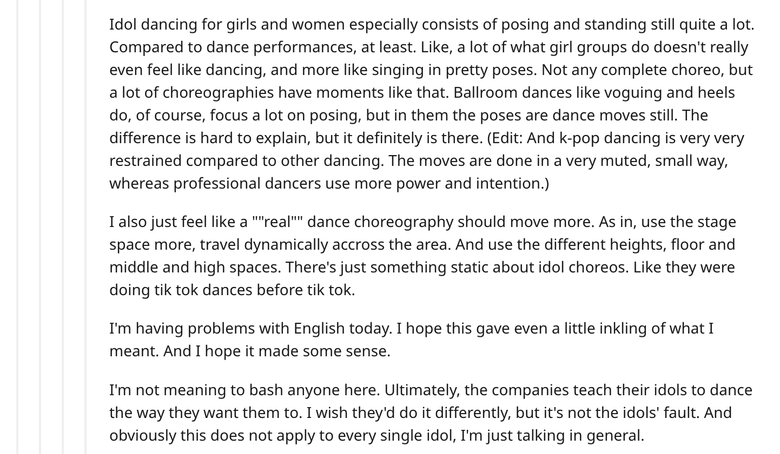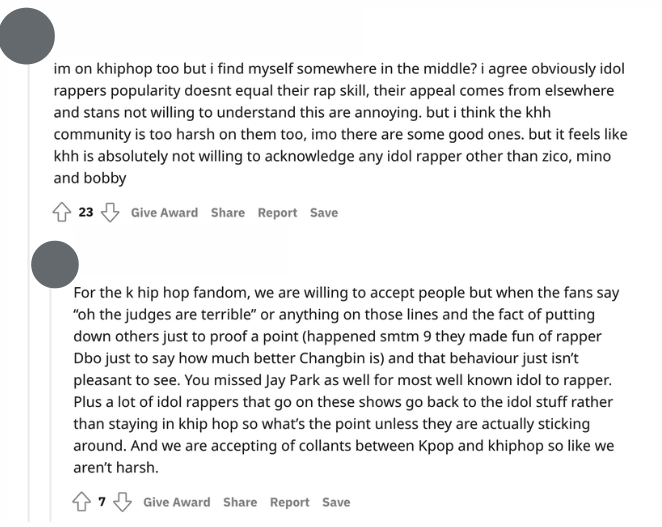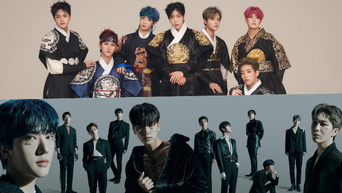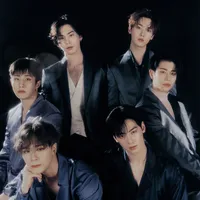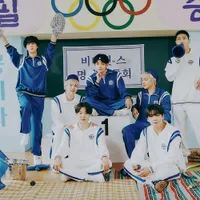As more fans get to unlock the charm that comes with Korea’s traditional and pop culture, so grows the opportunity for them to learn about more than just the industries we’ve mentioned above. More and more international fans have taken an interest in growing industries such as K-Dance, K-Trot, and more. Whilst these industries have always been big in Korea, they have been grabbing the attention of international fans slowly but surely over the years. Additionally, due to the recent rise of shows highlighting these industries on a grand scale, they have earned a new level of appreciation from all audiences (even new audiences in Korea itself). For example, K-Dance has taken on a new level of popularity since the advent of shows like “Street Woman Fighter”, “Be Mbitious” and “Street Man Fighter”. Unlike before, when only dance enthusiasts and some K-fans were interested in Korean dancers and their performances, K-Dance has now been elevated to a larger scale with newfound admiration. This applies to both Korean and global perspectives. “When a new song comes out no one used to write the name of the choreographer. I was sad about it but now they are getting famous and recognized more. I’m so happy about that.” - Lim BoNa (Heyday YouTube Channel) In the same breath, trot music has always been popular in Korea (especially among older generations), however, the advent of shows like “Mister Trot” and “Miss Trot” have made the genre’s popularity trickle into younger generations, too. Trot artists such as Lim YoungWoong and YeongTak have not only captured the attention of Korean youth but also contributed to the popularity of the genre internationally. In fact, the K-Trot genre has become even more accessible due to K-Pop idols such as Super Junior-T, ASTRO’s MJ, MONSTA X’s MinHyuk (feat. JooHoney), and BTS’ Jin covering or creating K-Trot songs of their own. More on this later. However, you can read this netizen’s take on the difference between the appeal of trot and K-Pop, as well as their opinion on the popularity of trot in relation to K-Pop. This aforementioned balance and/or crossover between K-Pop which is considered part of mainstream Korean entertainment and other industry such as K-Trot, etc. has sparked some debate. In recent years, there has been an increase in K-Pop idols participating in industry-specific programs. Whilst most people appreciate their idols taking part in these programs, some people (K-Pop and non-K-Pop fans alike) have felt that it is not idols’ place to be part of these industry-specific shows. Let’s take a deeper look at how fans have felt about the inclusion of K-Pop idols in industry-specific shows. Note: For the sake of this article, ‘industry-specific’ refers to a show that is intended for professionals who specialize in a specific industry. This article refers to idols whose main occupation is being an idol (i.e. they are not a full-time dancer/choreographer, trot singer, etc.)
Purpose/intent/understanding behind idol participation in industry-specific shows
Many have pointed out that the inclusion of idols on shows like “Be Mbitious” and, as a result, “Street Man Fighter” is a marketing device to create buzz for the shows. Following the mixed reception that former IZ*ONE member Lee ChaeYeon received from her appearance on “Street Woman Fighter”, some fans of the show franchise are skeptical about the intentions behind adding idols to these types of shows. Lee ChaeYeon’s presence as an idol on “Street Woman Fighter” created a lot of drama, attracting even more attention to the show. The debate about her appearance stems from the fact that she is an idol dancer, which is a different style of dancing compared to that of full-time dancers. One member of the show described idols dancing styles as different because their dancing focuses more on showcasing themselves than the actual choreography. On top of stylistic differences, although both idol and full-time dancers are extremely talented, the experience and technique that goes into their performances are also quite different. Whilst some fans commended Lee ChaeYeon for taking on a challenging survival show and wanting to show her skills, many fans had opposite reactions. This fan highlighted the differences in skill gaps between idols and professional dancers. This fan spoke about the intricacies of technicality that would create a gap in skills. This has been one source of animosity towards idols participating in industry-specific survival shows as many fans feel that the industries are different, meaning that there could be a disparity in skill levels, too. Additionally, some fans have an issue with the implications of what allowing an idol to participate among specializing professionals means. There is concern that the time, effort, and experience that professionals have put into their craft may be taken too lightly. However, despite the naysayers, many acknowledge that Lee ChaeYeon is still one of the top idol dancers out there. Her experience on the show does not define or reduce her overwhelming talent. Here is a video of her viral dance skills that boast groovy fluidity. Many are looking forward to her solo debut in October, too. You can read more about the reasons why here. As such, some fans feel that as long as an idol is aware of the skills required of them to compete then they should be allowed to participate. After all, they are all idols for a reason. Each of them has an abundance of talent, it is just a matter of choosing the show carefully.
Effects/Non-effects of idol participation in industry-specific shows on said industries
Whilst some fans think that K-Pop idols competing in industry-specific shows are disadvantageous, others believe that the connection to K-Pop can serve as a positive for the said industry. As we mentioned earlier, besides K-Dance, K-Trot is also on the rise in terms of global popularity. With its rise in popularity among young Koreans, more and more K-Pop idols are also becoming interested in the genre or showing more of their interest publicly. As a result, many K-Pop fans get to expand their Korean music knowledge through their favorite idols. This might be from listening to their idol’s trot covers, or even checking out a trot song recommendation from their bias, etc. As such, some fans see the connection of K-Pop idols with industries/genres like trot as a good thing, because they believe that the association will help the genre to grow and become popular. However, one concern and fact that some fans want to highlight is that these genres are not dependent on K-Pop associations for their success, especially at the moment. Plenty of industry-specific artists are doing well in their own right, as well. This netizen accounts for the ways that trot has been experiencing a boom in its own right in recent years. Simultaneously, it is true that these industries are receiving love through a push from the K-Pop industry, too. For example, ASTRO’s MJ made a trot debut and has done trot solo stages at ASTRO concerts, letting more and more K-Pop fans discover the genre. In his case, even if a fan didn’t know about the trot genre before but enters the AROHA fandom, they will get to learn about it through MJ’s influence. He not only wows fans his fans through the genre, but AROHA (ASTRO’s fandom) enjoy seeing him performing a genre that he holds dear to his heart. In this regard, you could say that idols should be allowed to participate in industry-specific shows because they allow them to explore their abilities in genres/styles that might be limited to them as idols in most cases. However, again, some fans especially feel that K-Pop idols should not be allowed to participate in shows like these because they tend not to stay in those industries after the fact. Most idols who participate in shows like the rap survival show “Show Me The Money”, for example, tend to go back to idol activities afterward. Many fans feel that the opportunity is wasted when it could’ve gone to someone who was trying to succeed in that specific industry instead of someone who already has an aspect (big or small) of fame in another. They also don’t appreciate the discrediting of professionals in these industries by K-Pop fans in favor of their favorite idols. This fan explains how they are on the fence about the matter because they have to acknowledge the talent of idol rappers (in this case). Their conflicted feelings come in when it comes to the clash in beliefs/opinions between other-industry-fandoms and their understanding of the purpose of the program/industry itself. At the same time, some fans feel that the presence of idols on these shows is necessary because it allows them to break stigmas surrounding idols and their abilities. One example is how iKON’s Bobby became the first idol to win “Show Me The Money”. There are many opinions on the significance of having idols on industry-specific survival shows. What do you think about the matter? Do you wish idols would get more opportunities to take part in these shows or wish that they wouldn’t? Let us know your thoughts in the comments!
Fans Debate The Standing Of Non-Asian Idols In The K-Pop Industry: The Who, Why, Where, And How FANBUZZ|Jul 4, 2022 How K-Pop Marketing Trends Have Changed Over The Years Using Boy Groups As A Case Study FANBUZZ|Jun 8, 2022 Fans Debate Whether Alternate Universes And Lore Are An Essential Part Of K-Pop Group Concepts FANBUZZ|May 27, 2022

